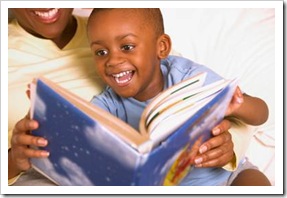
Kids behave differently at home and parents wonder many times about the difference between them and the teachers. Some parents are surprised when a teacher says, “Your child is an angel in my class”.
I remember my mom coming home from a parent-teacher meeting in my sister’s class and saying, “It was as if we were talking about a different girl” (she did not say this about me, because I was trouble in both places).
Over 23 years of teaching, I have been asked many questions regarding school and home, teachers and parents.
“Why is my son/daughter so … at home but so … at school?”
“What do you do at school that I can do at home to change my kids’ behavior?”
“How do teachers manage to do what I cannot do at home?”
“Why is my kid such an angel at school and so much trouble at home?”
My answer is always:
School is not an equivalent to home and teachers are not parents
Ronit Baras
Kids do not behave the same at school as they behave at home, mainly because school and home are two very different settings. There is a huge difference between the big building with hundreds or sometimes thousands of kids and the family setting of 3 to 7 people of different ages living under one roof.

If you have ever asked yourself these questions, here are some important differences between parenting and teaching and between school and home that could answer them for you. Remember, teachers have a huge advantage over parents in some areas that help them do their job better.
Teachers vs. parents
- Teachers study at least 4 years to become teachers, while parents do not attend any school for parenting.
- Teachers study in a supportive place with many mentors and role models and it is easier for them to pick the best model for teaching kids at school, while most parents have few role models and sometimes none. Typically, parents do not have a variety of styles to choose from and default to the way they were brought up.
- Teachers get a lot of working experience during their 4 years of studies, while parents experience everything in real time, using trial and error without any handouts. When a teacher teaches your child, he or she has already finished her practice time and by the third year of teaching, he or she has repeated the same things again and again, polishing and fine-tuning along the way.
 Teachers enjoy professional development courses every year. Most parents finish their whole parenting career without any courses. Teachers also keep up with new research and new methods and update their professional skills regularly, while most parents do not seek new parenting knowledge unless they have some special need.
Teachers enjoy professional development courses every year. Most parents finish their whole parenting career without any courses. Teachers also keep up with new research and new methods and update their professional skills regularly, while most parents do not seek new parenting knowledge unless they have some special need.- School runs weekly meetings, in which teachers and administrators help each other resolve issues and get better results. At best, parents consult their friends on a need basis and get advice of mixed quality, based on personal experience.
- Teachers share the load with other teachers. In your kids’ life, they can be taught by about 100 teachers. Each one of these teacher has the ability to influence their life forever. Parents have one more person to share the load with and at the current rate of divorce, your kid may have 1 to 4 parents at most (if you can, stick to two – two is a good number).
- Teachers typically start working at 9 and finish at 3 (depending on the country, the school and special events). Parents start working the minute they open their eyes in the morning and stop working when they close them at night (regardless of country, school, job, leap year and most other considerations).
- Teachers can always send misbehaved kids to the principal’s office. At best, parents can send them to their room and deal with them later. Therefore, teachers have as part of the system an authority that supports them when they need help. Some parents say, “I will call your dad” or “I will call the cops” (not a good idea, because cops are not supposed to be scary for kids), but in fact, at home, parents are the principles, which means they have no backup.
 On public holidays, parents also have to take the place of the teachers and keep the kids occupied, while the teachers have a break.
On public holidays, parents also have to take the place of the teachers and keep the kids occupied, while the teachers have a break.- As a teacher, you can take sick leave when they do not feel well. Being sick as a parent makes life even more complicated.
- Teachers get paid to be with the kids and educate them. Parents pay for the teachers to do this (through taxes). I promise you that if you were paid a full time salary to be with your kids, you would have a lot more fun.
- Routine at school is set and lunch break is always at the same time – this gives kids stability that is very hard to replicate at home. At home, time is more fluid, which causes children to stretch the limits more than at school.
- Teachers do not wash dirty clothes or do the dishes. At the end of the day, the janitor comes to clean up the floor. Parents do not have this luxury. Having a janitor helps the teachers focus on their job better.
- If teachers and kids do not get along with each other, the school can transfer the kid to another class. At home, would you transfer your kids to the neighbor?
- Many teachers are experts in one topic. Parents need to have a good handle on many areas and those keep changing.
- Teachers change classes almost every year. Parents stay with the same kids as long as they live.
- School has a lot more space and better equipment for kids to play with. School is also full of friends.
- At the end of each term, teachers must evaluate their students’ performance, which give them a chance to review their own work, so they can improve over time. Most parents do not review their parenting, which makes their progress un-directed and slower.
Complementary to parents
 Though it may look from my writing as if I am the spokeswoman for the Teachers Association, trying to encourage people to become teachers (some clients tell me this), I am not. I did not mean that teaching is easy, but relative to parenting, it is much easier.
Though it may look from my writing as if I am the spokeswoman for the Teachers Association, trying to encourage people to become teachers (some clients tell me this), I am not. I did not mean that teaching is easy, but relative to parenting, it is much easier.
As a mother and a teacher, juggling the two roles (which I find a great advantage), I believe that teachers have big advantages when it comes to controlling kids’ behavior.
If you feel your kids’ teachers are doing better than you at educating your kids, remember that their job is easier than yours and that teachers are not substitute parents. They are a complementary to your parenting. Treat them like that!
Happy parenting,
Ronit
 Teachers enjoy professional development courses every year. Most parents finish their whole parenting career without any courses. Teachers also keep up with new research and new methods and update their professional skills regularly, while most parents do not seek new parenting knowledge unless they have some special need.
Teachers enjoy professional development courses every year. Most parents finish their whole parenting career without any courses. Teachers also keep up with new research and new methods and update their professional skills regularly, while most parents do not seek new parenting knowledge unless they have some special need. On public holidays, parents also have to take the place of the teachers and keep the kids occupied, while the teachers have a break.
On public holidays, parents also have to take the place of the teachers and keep the kids occupied, while the teachers have a break.










